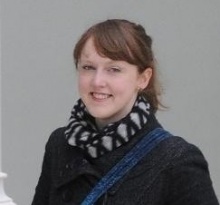The evolution of recombination rates in the wild

Dr. Susan Johnston
Institute of Evolutionary Biology, University of Edinburgh, UK; Susan.Johnston@ed.ac.uk
(talk in English)
ATTENTION: En raison des mesures de restriction d’accès au Campus Triolet, les personnes extérieures à l’Université de Montpellier doivent venir munies de: AFFICHE IMPRIMÉE + UNE PIECE D'IDENTITÉ.
Meiotic recombination has the benefit of uncoupling beneficial alleles from linked deleterious alleles. However, it also has the cost of breaking up favourable allelic combinations previously built up by selection. The relative benefits and costs of recombination are likely to vary with differences in strength of selection and population demography: if recombination rate itself is heritable, then changes in its selective advantage means that it will evolve over time. My research integrates traditional quantitative genetic approaches with modern genomic technologies to investigate recombination rates in wild Soay sheep, a Neolithic breed that has been intensively studied since 1985. I will discuss how we determine the genetic basis of this trait using single and multi-locus association methods, before examining the relationship between genetic variants and individual fitness. I will then discuss the implications of these findings for understanding the evolutionary importance of recombination in contemporary populations.
Recent publications:
Johnston SE, J Slate, JM Pemberton (2015) RNF212 is associated with sexually-dimorphic recombination rate variation in wild Soay sheep (Ovis aries). Pre-print available on BioRxiv
Johnston SE, P Orell, VL Pritchard, MP Kent, S Lien, E Niemelä, J Erkinaro, CR Primmer (2014) Genome-wide SNP analysis reveals a genetic basis for sea-age variation in a wild population of Atlantic salmon (Salmo salar). Molecular Ecology, 23, 3452–3468
Johnston SE, J Gratten, C Berenos, JG Pilkington, TH Clutton-Brock, JM Pemberton, J Slate (2013) Life history trade-offs at a single locus maintain sexually selected genetic variation. Nature, 502, 93-95
Contact: Anne Charmentier, anne.charmantier@cefe.cnrs.fr
Contact du Comité SEEM: seem@services.cnrs.fr. Contact du Labex CEMEB: gestion.cemeb@univ-montp2.fr, www.labex-cemeb.org.


